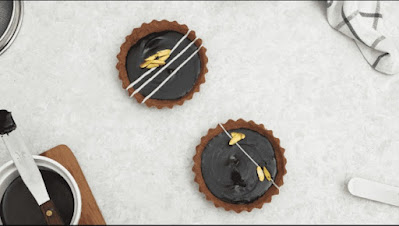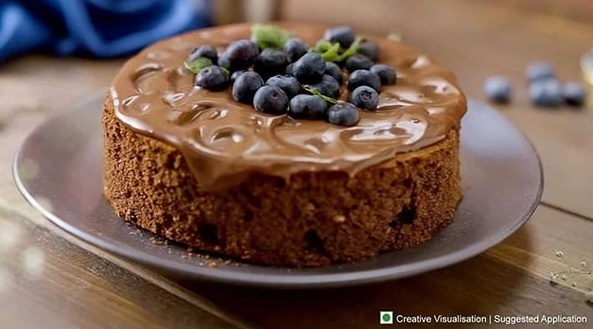What’s the difference between tarts and pies?
Whether
you’ve got it in your head that a pie might just be a giant tart—or is a tart
just a fancy, snazzed-up pie?—here’s a few ways to see beyond the crust. Considering
how to make
chocolate tart? Get to know the difference between pie and tart first.
What is a pie?
Pie
is a baked dish featuring a fruit filling encased in dough, which is called
a pie crust once
baked. Pie doughs can be made into a double-crust (filling is fully encased),
single-crust (open top, with a single blind-baked bottom crust), or somewhere
in between (fancy lattice-top crust).
Pie
recipes can be savory or sweet. Basically, if something tastes good outside of
a pie, it probably tastes really good
inside one (think, apples in classic apple pie, to
mixed berries and roasted butternut squash). Be sure to keep moisture content
in mind, especially with meat-based preparations: no one likes soggy,
undercooked crust, which is exactly what you’ll get if you bake raw meat. Brown
it off in a pan before adding it to your crust.
What is a Tart?
A
tart is a freestanding shallow open-faced pastry, often baked in a tart pan
with a removable bottom, with fluted or straight sides. Smaller tarts are
occasionally referred to as tartlets, which fit very adorably in the palm of
your hand.
They
are typically served with unbaked fillings, like French pastry cream and glazed
fruit or layers of salted caramel and dark chocolate ganache, or lightly baked
fillings, as seen with pastel
de nata or Chinese egg custards. Texture is key when it comes
to tarts: too heavy and the delicate shell might shatter. Airy, smooth, creamy
fillings are your best bet. Prop up some precision-cut fruit and you’ve got a
tart that’s ready-made for a French pastry case.
What are the differences between pie and tarts?
Flaky,
firm pie crust is made from flour, fat (like butter, shortening, or lard), cold
water (occasionally including vinegar or vodka), and salt. Tart shells, on the
other hand, are made with conventional pastry dough: flour, butter, water, and
occasionally sugar, which results in a more crumbly, “short crust" when
baked.
Tarts
are generally the more delicate and composed of the two, featuring intricate
patterning and less forgiving textures, though some variations use a crust more
similar in form to a rough puff pastry. Pies are often considered more humble
and rustic—presented in their pie dish and paired with a scoop of ice cream for
pie à la mode. Whereas picture-perfect tarts are often carefully removed from
their tart pan and served on their own.
How are pies and tarts similar?
At
their core, both pies and tarts are built as a showcase for their filling. Both
crusts feature flour and a fat interacting to create a buttery starch, a
perfect complement to everything from sweetened fruit to traditional savory
preparations.
As you know the difference, enjoy your sweet treat.



Comments
Post a Comment